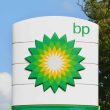Apple Inc. shareholders have dismissed a proposal urging the company to withdraw from diversity, equity, and inclusion (DEI) initiatives, despite mounting political pressure from former US President Donald Trump’s administration.
The motion, introduced by the National Center for Public Policy Research—a conservative think tank—called on Apple to follow the example of several major corporations that have recently scaled back their DEI programmes. However, after a brief presentation on the matter, Apple announced the proposal had been rejected, though it did not disclose the voting results.
The decision reinforces Apple’s commitment to fostering a diverse workforce, even as Trump has urged the US Department of Justice to investigate whether such initiatives discriminate against certain employees based on race or gender.
Apple’s CEO, Tim Cook, has maintained a pragmatic relationship with Trump since his first term, an approach that has previously helped the company avoid tariffs on China-manufactured iPhones. Their latest meeting last week preceded Apple’s announcement of a $500 billion investment in the US and the creation of 20,000 jobs over the next five years—moves welcomed by the former president.
The shareholder vote comes just a month after the same think tank proposed a similar motion at Costco Wholesale Corp.’s annual meeting, only to see it overwhelmingly rejected. Undeterred, the group pressed ahead with its challenge to Apple, with Stefan Padfield, executive director of the Free Enterprise Project, arguing in a pre-recorded presentation that “forced diversity is bad for business.”
Padfield contended that Apple’s DEI policies are misaligned with recent court rulings and could expose the company to legal challenges, including from the Trump administration.
Apple, however, maintains that a diverse workforce is good for business. Cook acknowledged that the company may need to adapt its approach as legal frameworks evolve but affirmed its commitment to cultivating an inclusive culture that has helped propel its market valuation to $3.7 trillion—making it the most valuable company in the world.
“We will continue to create a culture of belonging,” Cook told shareholders.
Apple’s most recent diversity and inclusion report, published in 2022, revealed that white and Asian employees comprised nearly three-quarters of its global workforce, with men accounting for almost two-thirds of its staff.
For years, the tech industry has grappled with a lack of diversity, particularly in high-paying engineering roles, despite efforts to broaden representation—many of which have seen limited success.





















